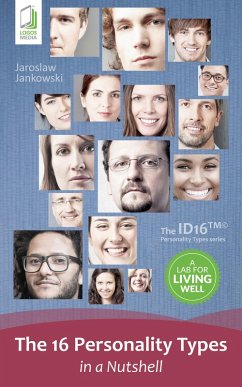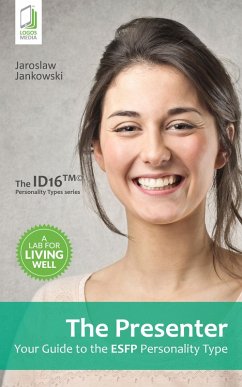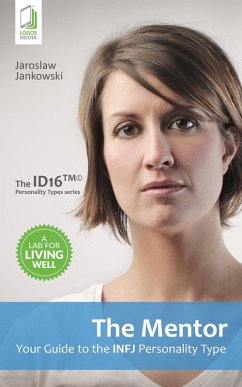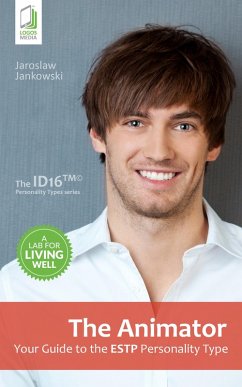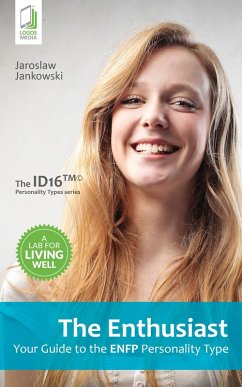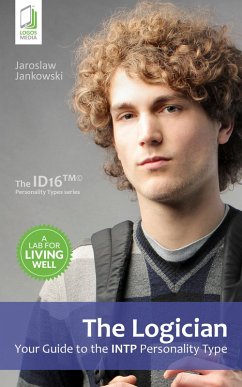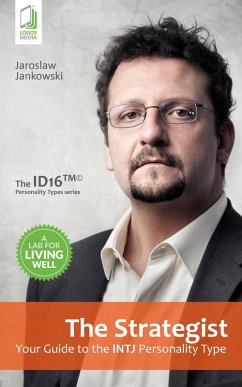
Why Are We So Different? (eBook, ePUB)
Your Guide to the 16 Personality Types

PAYBACK Punkte
0 °P sammeln!
Why are we so very different from one another? Why do we organise our lives in such disparate ways? Why are our modes of assimilating information so varied? Why are our approaches to decision-making so diverse? Why are our forms of relaxing and 'recharging our batteries' so dissimilar? 'Your Guide to the ID16 Personality Types' will help you to understand both yourselves and other people better. It will aid you not only in avoiding any number of traps, but also in making the most of your personal potential, as well as in taking the right decisions about your education and career and in buildin...
Why are we so very different from one another? Why do we organise our lives in such disparate ways? Why are our modes of assimilating information so varied? Why are our approaches to decision-making so diverse? Why are our forms of relaxing and 'recharging our batteries' so dissimilar? 'Your Guide to the ID16 Personality Types' will help you to understand both yourselves and other people better. It will aid you not only in avoiding any number of traps, but also in making the most of your personal potential, as well as in taking the right decisions about your education and career and in building healthy relationships with others. The book contains the ID16 Personality Test, which will enable you to determine your own personality type. It also offers a comprehensive description of each of the sixteen types. As you explore it, you will find the answer to a number of crucial questions: * How do the people who fall within a particular personality type think and what do they feel? How do they make decisions? How do they solve problems? What makes them anxious? What do they fear? What irritates them? * Which personality types are they happy to encounter on their road through life and which ones do they avoid? What kind of friends, life partners and parents do they make? How are they perceived by others? * What are their vocational predispositions? What sort of work environments allow them to function most effectively? Which careers best suit their personality type? * What are their strengths and what do they need to work on? How can they make the most of their potential and avoid pitfalls? * Which famous people fall within a particular personality type? * Which nation displays the most features characteristic of a given type? ID16 is a personality typology which draws on the theory developed by Carl Gustav Jung. Typologies formulated on the basis of Jung's theory are widely used in teaching, training, coaching and human resource management, as well as in career and relationship counselling. They also form a basis for numerous programmes supporting personal development and improving interpersonal relationships. The majority of global businesses employ Jungian personality tests as a standard tool in their recruitment procedures and vocational development processes.
Dieser Download kann aus rechtlichen Gründen nur mit Rechnungsadresse in A, B, BG, CY, CZ, D, DK, EW, E, FIN, F, GR, HR, H, IRL, I, LT, L, LR, M, NL, PL, P, R, S, SLO, SK ausgeliefert werden.




